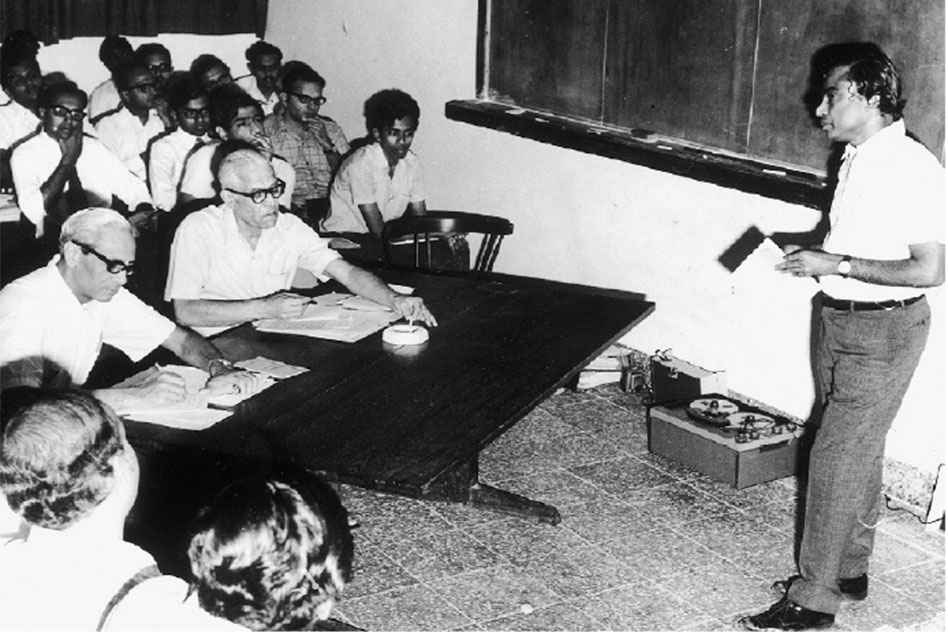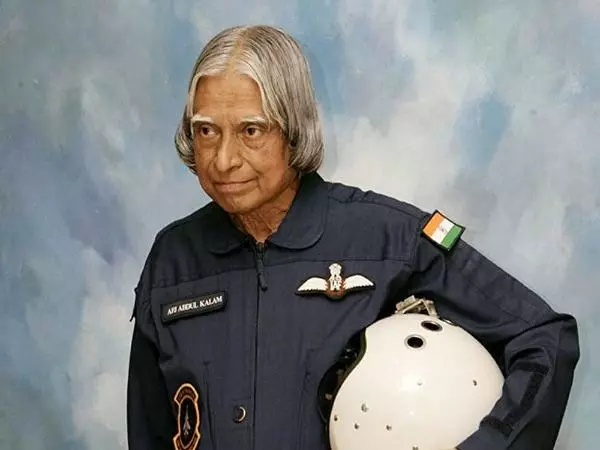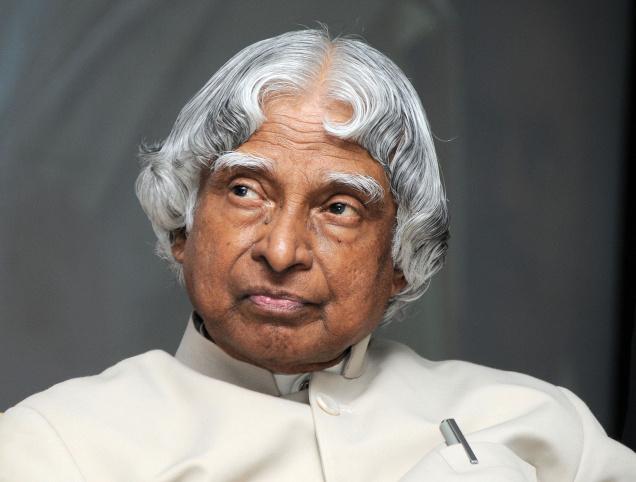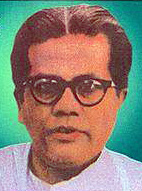Dr. APJ Abdul Kalam, fondly known as the “Missile Man of India,” was a visionary scientist and the 11th President of India. Born on October 15, 1931, in Rameswaram, Tamil Nadu, he rose from humble beginnings to become one of the most respected figures in Indian history. His journey from a small-town boy to a renowned aerospace engineer and a beloved president is nothing short of inspirational.
Dr. Kalam’s significant contributions to India’s defense and space programs are well-documented. As a key figure in the development of the Satellite Launch Vehicle (SLV-III) and the Integrated Guided Missile Development Program (IGMDP), he played a pivotal role in advancing India’s missile technology. His work on the Agni and Prithvi missiles earned him national and international acclaim.
As President from 2002 to 2007, Dr. Kalam was known for his accessibility and connection with the youth. He championed education, innovation, and national development, leaving a lasting impact on the country’s progress. His presidency was marked by a unique blend of scientific acumen and compassionate leadership, earning him the title of “People’s President.”
Early Life and Education

Birth and Family Background
Dr. APJ Abdul Kalam was born on October 15, 1931, in the small town of Rameswaram, Tamil Nadu. His family was modest, with his father, Jainulabdeen, being a boat owner and imam at a local mosque, and his mother, Ashiamma, a homemaker. Despite their limited means, his parents instilled in him the values of hard work, discipline, and education.
Education
Kalam’s early education took place in Rameswaram, where he attended the local elementary school. His curiosity and passion for learning were evident from a young age. After completing his schooling, he pursued a degree in Physics at St. Joseph’s College, Tiruchirappalli. His academic journey didn’t stop there; he went on to study aerospace engineering at the prestigious Madras Institute of Technology (MIT). This education laid the foundation for his illustrious career in science and technology, shaping him into the visionary leader he would become.
Career as a Scientist

Initial Career
Dr. APJ Abdul Kalam began his illustrious career by joining the Defence Research and Development Organisation (DRDO) and later the Indian Space Research Organisation (ISRO). At DRDO, he worked on a hovercraft project, which marked the beginning of his journey in defense technology. His move to ISRO was a turning point, where he contributed significantly to India’s space program.
Key Projects
At ISRO, Dr. Kalam played a crucial role in the development of the Satellite Launch Vehicle (SLV-III), which successfully deployed the Rohini satellite into orbit in 1980. This achievement was a milestone for India, showcasing its growing capabilities in space technology. Later, at DRDO, he spearheaded the Integrated Guided Missile Development Program (IGMDP), which aimed to develop a range of missiles for India’s defense.
Missile Development
Dr. Kalam’s work on the Agni and Prithvi missiles was groundbreaking. The Agni series of ballistic missiles and the Prithvi series of tactical surface-to-surface missiles significantly enhanced India’s strategic defense capabilities. His contributions to these projects earned him the nickname “Missile Man of India,” reflecting his pivotal role in advancing the nation’s missile technology.
Presidency (2002-2007)

Election as President
In 2002, Dr. APJ Abdul Kalam was elected as the 11th President of India with overwhelming support from both the ruling party and the opposition. His non-partisan image and immense contributions to science and technology made him a popular choice. His election was seen as a unifying moment for the country, bringing together diverse political factions.
Initiatives and Policies
During his presidency, Dr. Kalam focused on several key areas, including education, youth empowerment, and technological advancement. He launched initiatives aimed at improving the quality of education and making it accessible to all. He also emphasized the importance of innovation and research, encouraging young minds to pursue careers in science and technology. His vision for a developed India by 2020, known as Vision 2020, outlined a roadmap for national development.
People’s President
Dr. Kalam’s tenure as President was marked by his unique approach to the role. He was known for his accessibility and his efforts to connect with the common people, especially the youth. He frequently visited schools and colleges, delivering motivational speeches and interacting with students. His humility, simplicity, and genuine concern for the well-being of the nation earned him the affectionate title of “People’s President.” His ability to inspire and engage with people from all walks of life left a lasting legacy.
Post-Presidency Contributions
Educational Initiatives
After his presidency, Dr. APJ Abdul Kalam dedicated much of his time to education. He visited numerous educational institutions across India, inspiring students with his lectures and interactions. His books, such as “Ignited Minds” and “Turning Points,” reflect his passion for nurturing young minds and promoting scientific thinking.
Vision 2020
Dr. Kalam’s Vision 2020 was a comprehensive plan aimed at transforming India into a developed nation by the year 2020. This roadmap emphasized various sectors, including agriculture, technology, and healthcare. His vision focused on sustainable development, economic growth, and improving the quality of life for all Indians.
Awards and Honors
Throughout his life, Dr. Kalam received numerous accolades for his contributions to science and society. Among these, the Bharat Ratna, India’s highest civilian award, stands out. His legacy continues to be celebrated through various awards and honors named after him, recognizing excellence in science, education, and public service.
Personal Life and Values
Simplicity and Humility
Dr. APJ Abdul Kalam was renowned for his simple and humble lifestyle. Despite his high-profile roles, he maintained a modest way of living, often seen wearing simple clothes and living in a small house. His personal values were deeply rooted in humility, integrity, and a strong work ethic. He believed in leading by example and was always approachable, earning him the affectionate title of “People’s President.”
Spirituality
Dr. Kalam’s spirituality was a significant aspect of his life. Raised in a devout Muslim family, he practiced his faith diligently. However, his spirituality transcended religious boundaries. He often spoke about the unity of religions and the importance of spiritual values in personal and professional life. His interactions with spiritual leaders from various faiths, including his close relationship with Pramukh Swami Maharaj, influenced his inclusive approach to spirituality.
Inspirational Quotes
Dr. Kalam’s words continue to inspire millions around the world. Some of his most famous quotes include:
- “Dream, dream, dream. Dreams transform into thoughts and thoughts result in action.”
- “You have to dream before your dreams can come true.”
- “If you want to shine like a sun, first burn like a sun.”
- “Don’t take rest after your first victory because if you fail in second, more lips are waiting to say that your first victory was just luck.”
Legacy and Impact
Influence on Science and Technology
Dr. APJ Abdul Kalam’s contributions to India’s scientific community are monumental. Known as the “Missile Man of India,” he played a pivotal role in the development of the country’s missile and nuclear programs. His work on the Agni and Prithvi missiles marked significant advancements in India’s defense capabilities. Beyond his technical achievements, Dr. Kalam’s leadership and vision fostered a culture of innovation and excellence within India’s scientific institutions.
Inspiration to Youth
Dr. Kalam’s life and work continue to inspire millions of young minds. His journey from a small town in Tamil Nadu to becoming the President of India is a testament to the power of dreams and perseverance. He often emphasized the importance of education, hard work, and dreaming big. His books, lectures, and interactions with students have left an indelible mark, encouraging the youth to pursue their passions and contribute to the nation’s development.
Memorials and Tributes
Dr. Kalam’s legacy is honored through various memorials and tributes across India. The Dr. APJ Abdul Kalam Memorial in Rameswaram, his hometown, is a significant site where people pay their respects. His birth anniversary, October 15th, is celebrated as World Students’ Day, reflecting his deep connection with students and education. Numerous institutions, scholarships, and awards have been named after him, ensuring that his contributions and values continue to inspire future generations.
Dr. Kalam’s legacy is a blend of scientific brilliance, inspirational leadership, and a profound commitment to education and national development. His impact on India and the world remains enduring and profound.
Conclusion
APJ Abdul Kalam, fondly known as the “Missile Man of India” and the “People’s President,” left an indelible mark on the nation with his visionary leadership, scientific achievements, and inspiring personality. His journey from a small town in Rameswaram to becoming India’s 11th President is a testament to his dedication, resilience, and unwavering commitment to the nation. Kalam’s contributions to India’s space and defense programs, especially his role in the development of ballistic missile and launch vehicle technology, not only bolstered India’s security but also inspired a generation of young scientists and dreamers.
FAQ’s
Q. Who was APJ Abdul Kalam?
A: APJ Abdul Kalam, also known as Dr. Avul Pakir Jainulabdeen Abdul Kalam, was an eminent Indian scientist, aerospace engineer, and the 11th President of India (2002-2007). He was widely recognized for his contributions to India’s missile and nuclear programs, earning him the nickname “Missile Man of India.”
Why is APJ Abdul Kalam called the “Missile Man of India”?
A: He is called the “Missile Man of India” because of his significant contributions to the development of ballistic missile technology in India. Kalam’s work on projects like Agni and Prithvi missiles revolutionized India’s defense capabilities.
Q. How is APJ Abdul Kalam remembered today?
A: APJ Abdul Kalam is remembered as a scientist, visionary leader, educator, and inspirational figure. His birth anniversary, October 15, is celebrated as World Students’ Day. Many educational institutions, awards, and programs are named in his honor, keeping his legacy alive.












